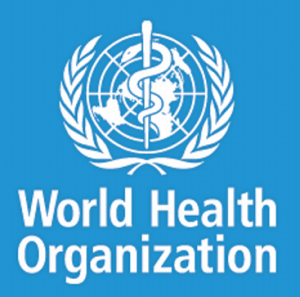The world needs $23.4b to solve inequities in access to COVID-19, vaccines, test and treatment
 The Access to COVID-19 Tools (ACT) Accelerator needs $23.4 billion until September 2022 to implement its strategic plan and budget for the next 12 months, to address deep inequities in the COVID-19 response, save millions of lives and end the acute phase of the pandemic.
The Access to COVID-19 Tools (ACT) Accelerator needs $23.4 billion until September 2022 to implement its strategic plan and budget for the next 12 months, to address deep inequities in the COVID-19 response, save millions of lives and end the acute phase of the pandemic.
Inequitable access to COVID-19 tests, treatments and vaccines is prolonging the pandemic everywhere and risking the emergence of new, more dangerous variants that could evade current tools to fight the disease, a World Health Organisation (WHO) statement copied to ghanabusinessnews.com has said.
Global attention is focusing on using the Access to COVID-19 Tools (ACT) Accelerator new strategy to help distressed places, such as Africa, to access COVID-19 vaccines, tests and treatment.
Lead partner agencies of the ACT-Accelerator are CEPI, FIND, Gavi, The Global Fund, UNICEF, Unitaid, Wellcome, WHO, the World Bank and The Bill & Melinda Gates Foundation.
A breakdown of the ACT-Accelerator’s $23.4 billion funding needs from October 2021 to September 2022 are as follows: $7.0 billion for diagnostics; $7.0 billion for vaccines; $3.5 billion for therapeutics and $5.9 billion for the Health Systems & Response Connector.
According to the WHO, “so far, only 0.4 per cent of tests and 0.5 per cent of vaccines administered worldwide have been used in low-income countries, despite these countries comprising 9 per cent of the global population.”
Just five African countries, less than 10 per cent of Africa’s 54 nations, are projected to hit the year-end target of fully vaccinating 40 per cent of their people, unless efforts to accelerate the pace take off.
This comes as the Region grapples to meet rising demand for essential vaccination commodities, such as syringes. Africa has fully vaccinated 77 million people, just 6 per cent of its population. In comparison, over 70 per cent of high-income countries have already vaccinated more than 40 per cent of their people.
Nearly 8.5 million COVID-19 cases and more than 217 000 deaths have been recorded in Africa. Ten African countries are still in resurgence, including four with upward trend or high plateau: Gabon, Congo, Cameroon and Egypt. The Delta variant has been found in 41 countries, the Alpha variant in 47, and Beta in 43.
The WHO statement noted that funding the new strategic plan and budget would enable the partnership to support the vaccination objectives of 91 lower-income countries in the COVAX Advance Market Commitment (AMC) and other countries, by delivering sufficient doses and supporting vaccination campaigns to achieve 43 per cent coverage in AMC countries.
It would also contribute to the global target of 70 per cent coverage in all countries by mid-2022, ensure 120 million COVID-19 patients in low- and middle-income countries have access to existing and emerging treatments, including medical oxygen and keep 2.7 million health workers in low- and middle-income countries safe with personal protective equipment (PPE), among others.
Meanwhile, the International Monetary Fund (IMF) estimates a loss of $5.3 trillion in global revenues by 2026 if large parts of the world remain unprotected from COVID-19.
The ACT-Accelerator Facilitation Council provides high-level political leadership and advice on global advocacy and resource mobilization to the initiative, and is co-chaired by Norway and South Africa.
According to the WHO, “from research to rollout, the ACT-Accelerator remains the world’s only end-to-end solution for accelerating the development and fair distribution of COVID-19 tools.”
The ACT-Accelerator’s impact so far includes:
Delivering more than 425 million vaccine doses to 144 countries and territories through COVAX;
Halving the cost of COVID-19 rapid tests, transferring technology to low and middle-income countries, and delivering more than 128 million tests through the Diagnostics Consortium;
Increasing essential oxygen, personal protective equipment (PPE) and treatment supplies, including through the advance purchase of nearly 3 million doses of dexamethasone and more than $4 billion worth of support from the Global Fund’s COVID-19 Response Mechanism (C19RM).
By Eunice Menka
Copyright ©2021 by NewsBridge Africa
All rights reserved. This article or any portion thereof may not be reproduced or used in any manner whatsoever without the express written permission of the publisher except for the use of brief quotations in reviews.
